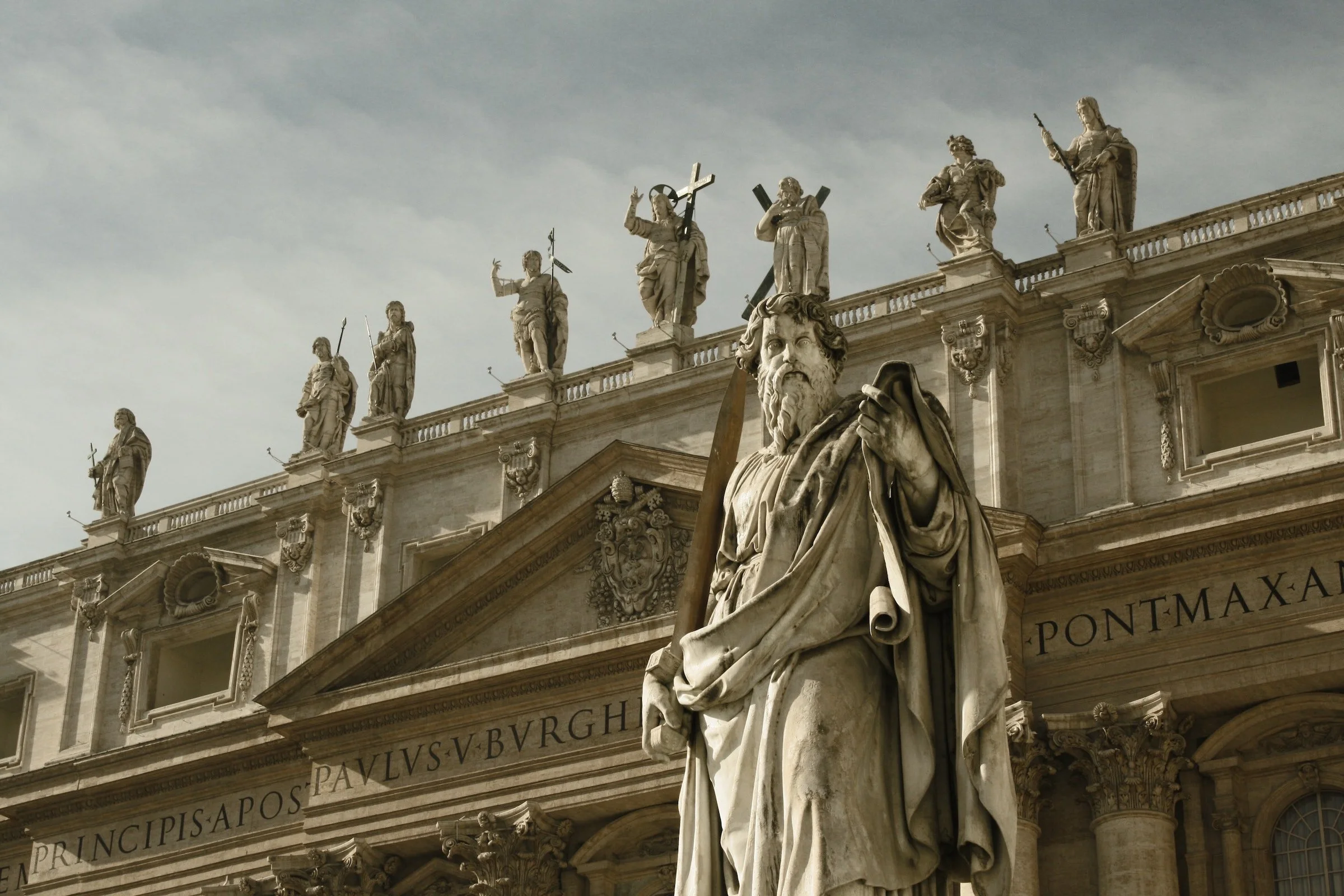
Marketplace Theology
CHURCH AND KINGDOM: The Theological issue of Church and Kingdom
The most important factor in keeping the church and the kingdom of God together is the person of Jesus Christ. He is the King of the Kingdom and he is the Head of the Church. In this article, Dr. Ross Hastings discusses on the theological issue of Church and Kingdom.
Send us out to do the work you have given us to do
We are called to see the world through the eyes of the Incarnation, able to know more completely what is and what isn’t, what matters and what doesn’t. And as a congregation we are remembering these weeks by focusing on work, which is most of your life and mine; and yes more deeply its meaning in the idea of vocation. For all of us that has been a great gift, an unusual gift because the Church as Church rarely thinks aloud about work, which is strange given that it is most of what the people of God do week after week.
Forming a Marketplace-Friendly Church
The equipping task has been misunderstood as enrolling people into the ministry of the church, making them assistant pastors, rather than preparing them for their Monday to Friday ministry in the home, workplace, the hospital and medical clinic, the university, and elementary school.
A Theological Understanding of Profit in Business
A business does not operate in a vacuum but is the recipient of shared cultural and intellectual wealth and is accountable to the community. As a major influence on life in today’s society, business has a responsibility to reflect on what that means. It is strategically positioned in society to express justice, covenant community and stewardship.
Humility for the artist-leader
Today humility is seldom extolled as a virtue worth pursuing. The opposite carries the day with the constant siren call to self-promotion. In this timely and important article, Christina explores the temptations and strengths of the artist-leader, probing a common challenge in the church for this role, examining Jesus’ example, and finally, discussing ways to practice humility with God.
On Being a Biblical Servant Leader: Insights from the Global Church
Servant leadership is that strange, enigmatic, self-contradictory, even oxymoronic combination of words, like “fried ice” or “falling upwards.” How can one be a servant and a leader at the same time?
Growing our Friendship with God through the Spiritual Discipline of Relinquishment
How can we cultivate our friendship with God? Is friendship simply a gift of God that we can receive and enjoy, or does it require the vigorous application of various spiritual and physical exercises? In this paper, Matthias argues that cultivating our friendship with God requires relinquishment from a “grasping spirit” and reception of his lavish love as a response to his unconditional, first love for us.
ORA ET LABORA: The heart of our calling
And because vocation is written into the very meaning of being human, our vocations are therefore integral to who we are, to why we are, and to what we do with our lives— even as they are integral to the work of God himself.
Business as a Calling and Profession: A Historical Review
In this article, Gordon examines the importance of some of the Greek philosophical and historical factors disparaging work and business, against which Protestant notions of vocation subsequently reacted.
Business as Calling and Profession: Towards a Protestant Entrepreneurial Ethic
In this article, Dr. Gordon aims to retrieve the Protestant doctrine of vocation and the related concept of profession in order to affirm contemporary business and guide it in a more ethical and accountable direction.
Blessing God Through Work and Worship
In this article, we are considering just how our work can be worship, as well as how our worship in the gathered life of the church can make the connection between Sunday and Monday. We do this in the light of our definition of marketplace theology, adapting the pithy definition of William Perkins in the 18th century to read: “Marketplace theology is the science of working blessedly forever.”
Toiling Under the Sun: Ecclesiastes and a Biblical Theology of Work
Work is a key theme in the book of Ecclesiastes. It provides a vital counterweight in a fully biblical theology of work, reminding us all our toil under the sin is blighted by the curse and doomed to futility apart from eschatological redemption in Christ.
The WORKER—Trinitarian Work
We have argued in previous articles that a wholistic marketplace theology must deal with the head (which systematic theology caters to), the heart (which embraces the need for prayer and spiritual formation), and the hands (which suggests that theology must be applied). But even more than application, it is in practice that we learn the truth about our work. In this article, we want to apply it to the worker herself. We will consider how the worker is inspired by and actually participates in the work of the triune God, Father Son, and Holy Spirit.
The Snake and the Dove: Life in the Marketplace
Living faithfully in the marketplace is a process of character building and continuous spiritual growth. It is important for Christians to be able to articulate their faith when confronted with marketplace values and demands. Traditionally, church life tends to focus more on the inner or spiritual aspects of its congregation and simultaneously it focuses on the gathering for worship within the church. So we teach the Bible and think about applications. We care for the sick and support families. Seldom do we go deep into how we confront challenges in the marketplace.
Towards a More Biblical View of Matter Towards a Theology of Work
It is not an accident that the Bible begins with a not-so-religious theme – a world of matter! It seems to be preoccupied, not with the creation of the spirit-world, but with a world of matter to be ruled over by humans. A correct theology of matter and the material world must precede a correct theology of work within the confines of that world. The theology of matter as laid down for us in the Bible is thrown into relief as we contemplate the two competing views of matter.
Going to Work with the Professor: Ecclesiastes and Meaning in Human Labour
I am a professor but not like the one who forms the title of the Old Testament book of Ecclesiastes, a person who had enormous influence and a harem! I have been married to one wonderful woman for sixty years. I am calling the author of Ecclesiastes “The Professor” because the Hebrew form, Qoheleth, of the Greek title, Ecclesiastes, is based on the Hebrew word qahal which suggests that he is someone who gathers or convenes an assembly.
I’m a Christian—But Who Am I at Work?
Back in my twenties, when I began working for state government, I struggled with how—as a Christ-follower—I should see myself in that role. By that time I could look back on more than two decades of involvement in local churches. But my church experience had not given me any language that could connect my faith with my role in the work world.
WORK: A Wholistic Approach—Head, Heart and Hands
Work is energy expended, whether manual or mental, purposively—unlike play which simply has the enjoyment of the activity itself as the end goal. Work has as its goal an accomplishment. But actually the distinction between work and play is not that absolute and, as we shall see, later, it is possible to play at work just as we work at play. In this essay we are dealing with work and approaching it from head, heart and hands.
Dualism and Work: The Greek Contribution
It is common for Christians to think about life being divided between the sacred and the secular. Prayer, Bible reading, witnessing and teaching at church are sacred while working, school, (unless it is a Bible Collage) raising children, eating, sleeping, traveling and everything else we do is secular. Similarly, working for the church as a pastor, missionary or youth worker is sacred, while working as an accountant, lawyer or longshoreman is secular. Our body is corrupt and a source of temptation while our soul is redeemed and bound for heaven. Contemplating and worshiping God is sacred but contemplating mathematics, philosophy or how best to do a job is secular.
Towards a Theology of Doing: The Science of Christian Reflection “from Below”
The vision we have for this series of articles on marketplace theology is this: every person in the marketplace could become a theologian of application. But to accomplish this the marketplace theologian must be in the marketplace, and preferably actively so. It is not obvious that one cannot learn well the doctrine in the classroom and do it later. In contrast the best education is education in service. It is transformative not preparatory. And behind this is an important principle of spirituality: the attempt to know God apart from the activities of life is unreal.




















